Unfortunately I was spoiled in broad terms about the ending of this week’s episode of Sarazanmai (in the age of social media, especially twitter, you don’t stand much of a chance). Still, it was a pretty big impact even with the element of surprise taken away, and that’s because it was solidly earned by the episode itself and not a total asspull for pure shock value. I can’t say it was an entirely welcome turn of events, but I can say it was brought off with considerable skill and panache.
Ikuhara gonna be Ikuhara, I suppose. The guy does love his death motifs, especially self-sacrifice. I kind of had in the back of my mind that Kazuki represented the ego and Toi the superego, which left the id for Enta. And if indeed that’s how Ikuahra intended it, one could hardly pick a more fittingly impulsive way for him to go out – though I’m not prepared to stipulate to the fact that he’s actually dead. I’ve already noted how Sarazanmai played like a somewhat less morbid and obtuse version of Ikuni – which I rather liked – but I suppose it was too much to expect him to get through the entire series in that mode.
Before things went all huggermugger there, Sarazanmai was reminding me of Tsuritama in more than just the obvious way of being a fabulously imaginative look inside the mind of teenage boys. That is to say, it seemed to represent for Ikuni what Tsuritama did for Nakamura Kenji (though he didn’t write it, Oono Toshiya did) – a human and approachable work from a director not necessarily known for that. Mawaru Penguin Drum was constantly engaging intellectually, but it was so relentlessly and belligerently opaque that it wasn’t always engaging emotionally. That hasn’t been the case here – Sarazanmai doesn’t seem to have MPD’s soaring thematic ambition, but it does a better job of connecting on a personal level.
This was an important episode in terms of more than just the ending, as Ikuhara is really starting to tie all the plot threads into a knot now. Bringing Enta and Chikai (I wonder what the significance of the Kuji brothers being named “Near” and “Far” is) together was an interesting move. Fittingly they meat in a run-down pachinko parlor, where Enta is doing his best impression of an irritable pocket-sized grandma with a lollipop instead of a cigarette. Enta seems to know who Chikai is (I assume from the facial resemblance) but the converse isn’t true, which makes Chikai a little freer with the truth that he would have been had he known his brother and Enta were connected.
Connections are certainly a major theme here, and the fact that there was a pre-existing one between Toi and Kazuki – one that predates his own connection with Kazuki – doesn’t improve Enta’s mood any. It’s easy to dump on Enta here, but I feel really sorry for him more than anything. He is indeed very id-like – he acts on his impulses and desires without considering the consequences, and he’s at the stage in life where his desires are at their most insistent. I do think he regrets stealing the dishes, but he also wants Toi gone for the threat he represents to his own “golden combi” with Kazuki.
Poor Toi is really caught in the middle here. He’s already had to give up something he loved (soccer – and Kazuki) for his brother, and now he has to do so again. Chikai is someone I don’t have a lot of sympathy for – I do believe he loves his brother and on some level believes he’s done the things he has for Toi, but he’s made choices, and he’s the one who should bear their consequences. It’s easier said than done I know, but the best choice Chikai could make for Toi would be to disappear without a trace. No good can come from drawing his brother into the life he leads, and that life is surely going to follow him – he can’t escape his past, and he doesn’t know any other way to live in any case.
As for Mabu and Reo, no sympathy there either. Whatever happened in the past, they’re agents of evil (complete with mind control pins) at this point – murderers and exploiters. One recurring theme we see in Ikuhara works is that death is inevitable and capricious, and when we choose to try and cheat it, bad things happen. He’s obsessed by tragedies (the Sarin gas attack with MPD, the Great Kanto Earthquake here – though it’s sort of a stand-in for Tohoku 2011) and the impact they have on the human psyche. He loves to puzzle over how people react to the unfair and the unjust, and almost invariably it’s a refusal to accept an unfair fate that leads to even deeper tragedy in an Ikuni story.
Finally, we have Kazuki, who’s proving himself a veritable weather-vane of emotional states. He’s whiplash-inducing with his mood swings, again not an atypical pubescent scenario, but the vitriol with which he attacks Enta here really exceeds the scope of the crime. What Kazuki seems to fear more than anything is the loss of his connections – which makes the way he treats his connection with Enta so cheaply all the more ironic. He was given the chance to see the cost of his self-indulgence and emotional volatility with Haruka just in time, but will he get that chance with Enta?


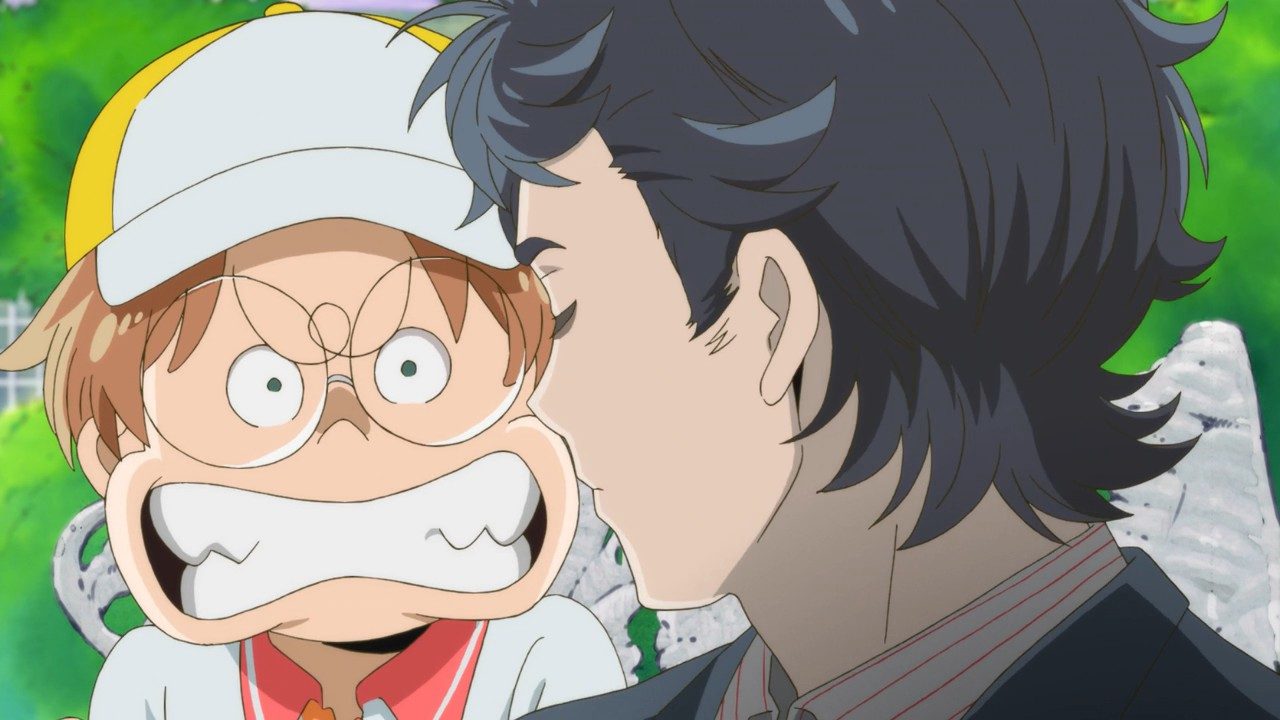
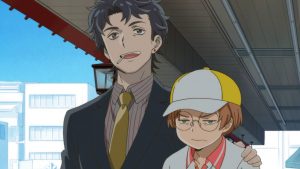
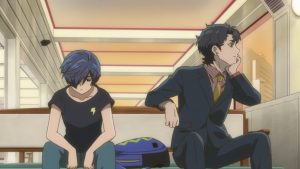
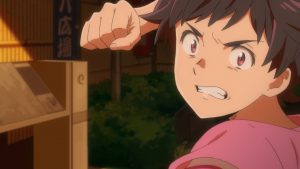

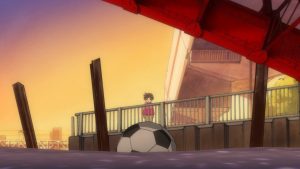

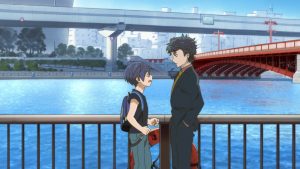

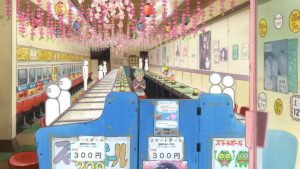

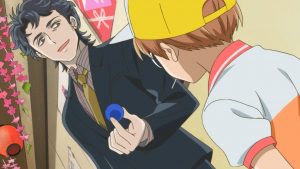
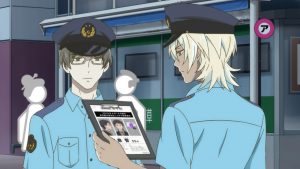
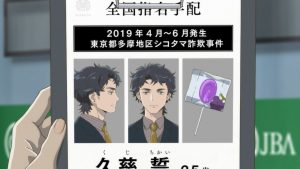
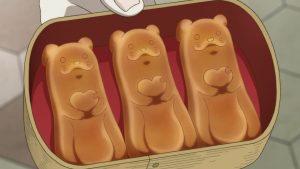
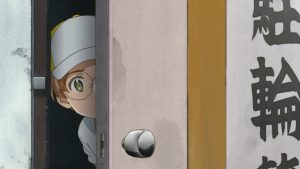
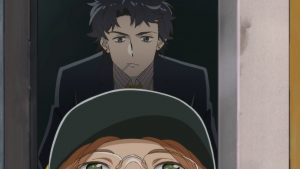
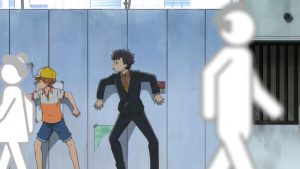
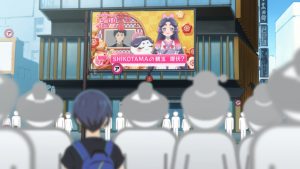
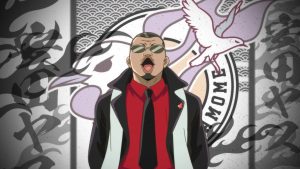
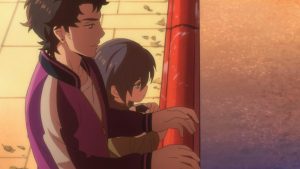
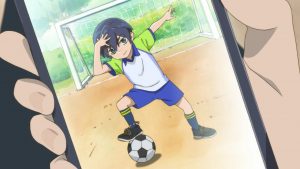
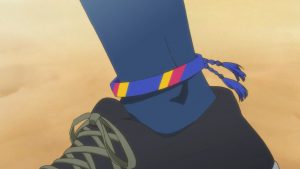
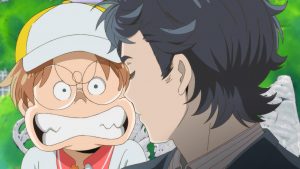

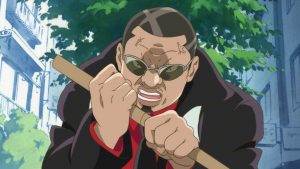
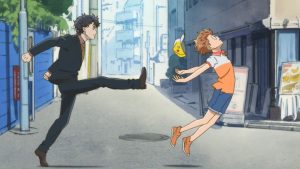
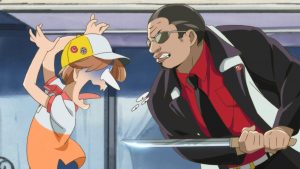
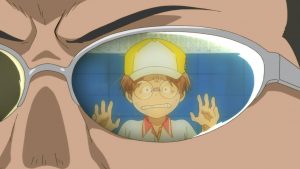
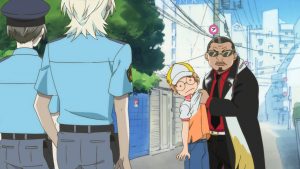
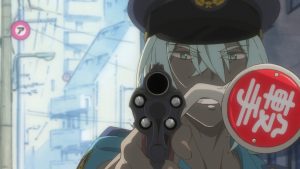
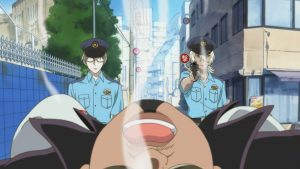
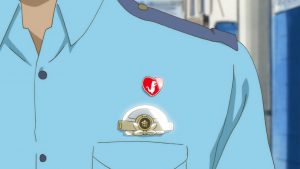
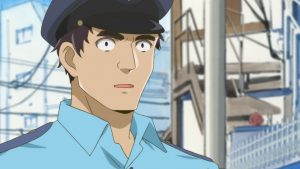
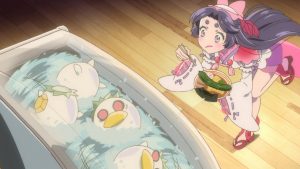

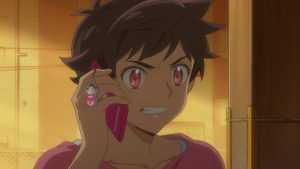
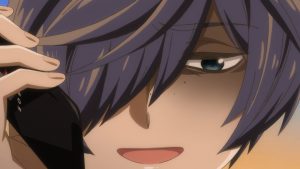
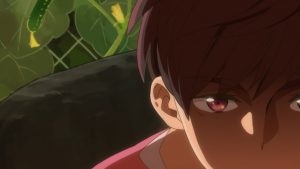
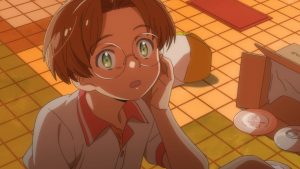
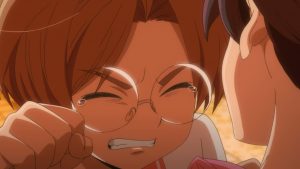
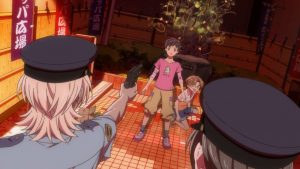
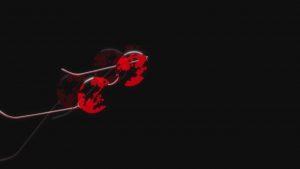
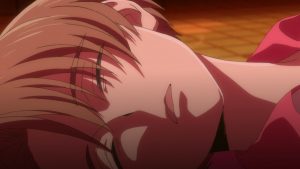
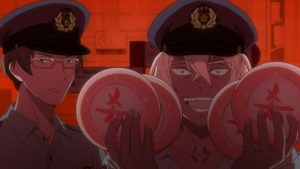
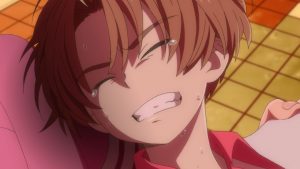

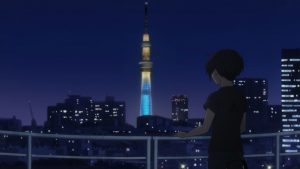

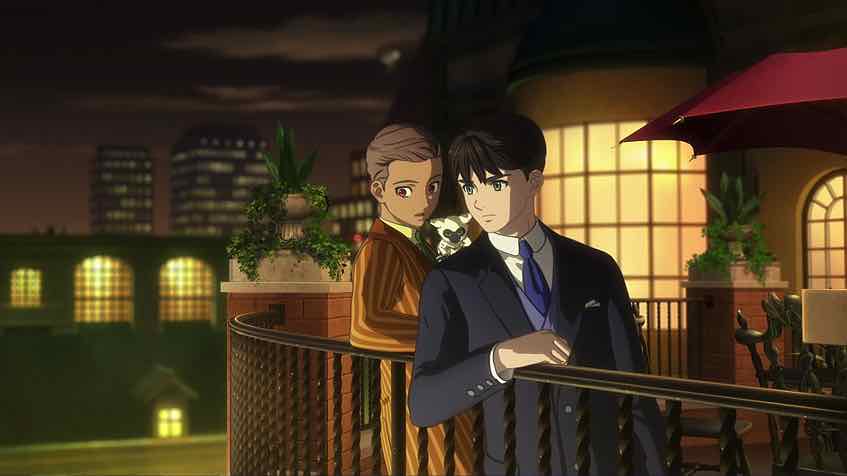
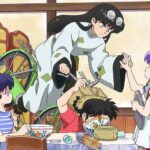
leongsh
May 31, 2019 at 11:37 pmEnta knows Chikai not from the resemblance but from the peak into Toi’s memories when he shared them during their sarazanmai where Toi’s past came to light.
There’s been speculation that in this episode’s ED sequence that the 2 shadows shown – down from the previous 3 shadows of earlier episodes’s ED – represents the death of Enta as it leaves Kazuki and Toi casting the shadows.. However, I see an alternate reading that it could be due to the parting of Toi from Kazuki and Enta with the 2 casting the shadows. We should get a clearer picture in the next episode.
Marty
June 1, 2019 at 3:11 amI know people dismissed this show as “the butt anime” but this is turning out to be a legitimately engaging show.
Guardian Enzo
June 1, 2019 at 8:50 amNo argument from me (though I wasn’t one of those people).
TheYepMan
June 1, 2019 at 9:40 amI do wonder what the hell is up with Kazuki. Everything seemed “resolved” back on episode 6, but right now he’s acting much weirder. I’d understand if he was just mad at Enta, but this is a bit… too much. I also wonder about him not remembering Toi… I mean, this is Ikuhara pulling the “they knew each other from before” like he’s very fond of doing, but he never uses it without justifying it. We’ll see.
As per Toi… To be honest, as much as Toi definitely seems like the most mature of the 3, he’s also not realizing that something is amiss with his relationship with his brother. Considering this is Ikuhara, I’m gonna say that that one scene of Toi’s aunt and uncle talking shit about Chikai behind his back and being worried about Toi is not a throwaway – Toi isn’t just giving up his friends for his brother, but he’s also giving up the rest of his family and his own hopes for the future (through the start of a life of crime) to follow his brother. I’m guessing that the next step for Toi’s arc would be to realize this and decide to leave his brother behind, but I hope it isn’t done abruptly – IMHO, Toi is better off not picking up Kazuki’s call, so that when that realization comes, it does so naturally instead of pressed by the risk of Enta dying.
Guardian Enzo
June 1, 2019 at 9:50 amI think in his way, Ikuhara is as suffering-obsessed as Urobuchi Gen.
Scampi
June 2, 2019 at 2:58 amIt was kind of funny but Urobutchi was upbeat in puppet season 1 too and then immediately relapsed in season 2 (the man himself admits he had a very bad case of not knowing what to do with chars after finishing with their development). Plus point to Ikuhara for his signature quirkiness though, it really peaks in Sarazanmai.
Scampi
June 2, 2019 at 3:25 amLiked your paragraph on the capriciousness in life and death. I wonder about Ikuhara’s fixation on childhood meetings and who comes first though. Enta’s jealousy is understandable, and I feel bad for him because I don’t really agree with the fate business and first love. Life is capricious after all. I’d like Katsuki to have forgotten naturally but seeing as how he kept the micanga after all this time he probably went through some memory manipulation in the beginning of episode one
Pavani
June 2, 2019 at 10:28 amAn outstanding review. I especially enjoyed your insights drawn from Ikuhara’s earlier works.
Guardian Enzo
June 2, 2019 at 11:38 amThank you for that – very kind.